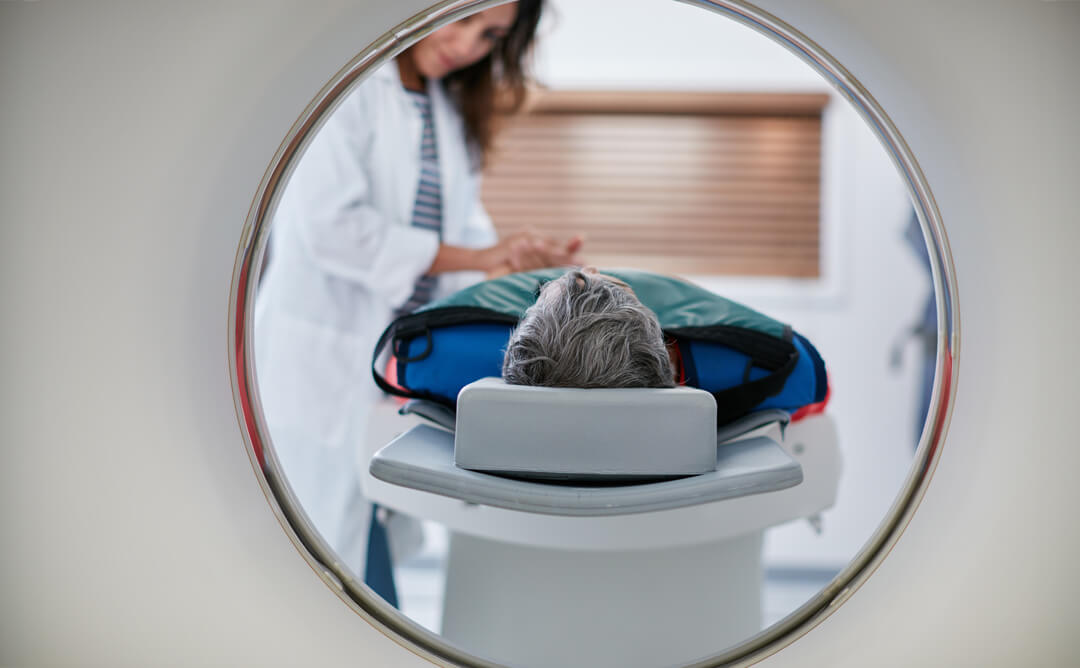Can MRI Diagnose Dementia?

Dementia is a multifaceted and complex disorder impacting millions globally. Understanding the role of medical imaging, particularly MRI (Magnetic Resonance Imaging), in diagnosing dementia is crucial.
What Does Dementia Look Like on an MRI?
While an MRI cannot directly diagnose dementia, it can identify a variety of changes in the brain that are associated with different types of dementia.
Common MRI findings include:
- Brain Atrophy: Significant shrinkage of the brain, particularly in the hippocampus and cortex, which are critical for memory and cognitive function.
- White Matter Changes: Abnormalities in the white matter, which is responsible for communication between different brain regions.
- Lesions: Small strokes or areas of dead tissue that can occur due to vascular dementia.
These changes can vary depending on the type of dementia. For example, Alzheimer's disease often shows significant hippocampal atrophy, while vascular dementia might present with multiple small lesions. By examining these indicators, doctors can gain valuable insights into the condition of a patient’s brain.
Dementia Brain Scans vs. a Normal Brain Scan
A normal brain scan typically shows well-preserved brain structures with no significant atrophy or lesions. In contrast, a dementia brain scan may show:
- Reduced Brain Volume: Noticeable shrinkage in specific regions, particularly the hippocampus and cortex.
- Enlarged Ventricles: The brain's fluid-filled spaces may appear larger due to surrounding brain tissue loss.
- White Matter Hyperintensities: These are bright spots on the scan that indicate white matter abnormalities.
Can an MRI Diagnose Early Signs of Dementia?
MRI can be instrumental in detecting early signs of dementia. Subtle changes, such as minor hippocampal atrophy or early white matter changes can be identified before significant symptoms appear. Early detection through MRI can lead to timely interventions, potentially slowing the progression of the disease and improving quality of life.
Is MRI or CT Scan Better for Detecting Dementia?
Both MRI and CT scans are useful tools, but MRI is generally considered superior for detecting dementia. MRI provides more detailed images of the brain’s structure and can better identify the subtle changes associated with early dementia. CT scans, while faster and more widely available, are less sensitive in detecting these early changes and are more commonly used to rule out other conditions that might mimic dementia symptoms.
What Are Early Indications of Dementia?
Early indications of dementia can be subtle and vary by individual, but common signs include:
- Memory Loss: Particularly forgetting recent events or important dates.
- Difficulty with Familiar Tasks: Having trouble completing everyday activities.
- Language Problems: Experiencing difficulty finding the right words or keeping up with conversations.
- Disorientation: Getting lost in familiar places or not recognizing time.
- Poor Judgment: Making uncharacteristically bad decisions.
- Mood and Personality Changes: Experiencing mood swings or changes in personality.
Recognizing these early signs and seeking medical advice can lead to an early diagnosis, allowing for better management and planning.
How Do Doctors Diagnose Dementia?
Diagnosing dementia involves a comprehensive approach that includes:
- Clinical Evaluation: Assessing medical history, cognitive function and daily living abilities.
- Neuropsychological Testing: Detailed tests to evaluate specific cognitive skills.
- Imaging Studies: MRI or CT scans to identify structural brain changes.
- Laboratory Tests: Blood tests to rule out other potential causes of symptoms.
- Specialized Tests: In some cases, PET scans or cerebrospinal fluid analysis may be used.
Understanding the capabilities and limitations of MRI in diagnosing dementia is essential for patients and caregivers. While MRI is a powerful tool, it is one part of a comprehensive diagnostic process that aims to identify and manage this challenging condition. If you think you or a loved one could benefit from MRI, talk to your doctor or call DRI at 336.433.5000.
